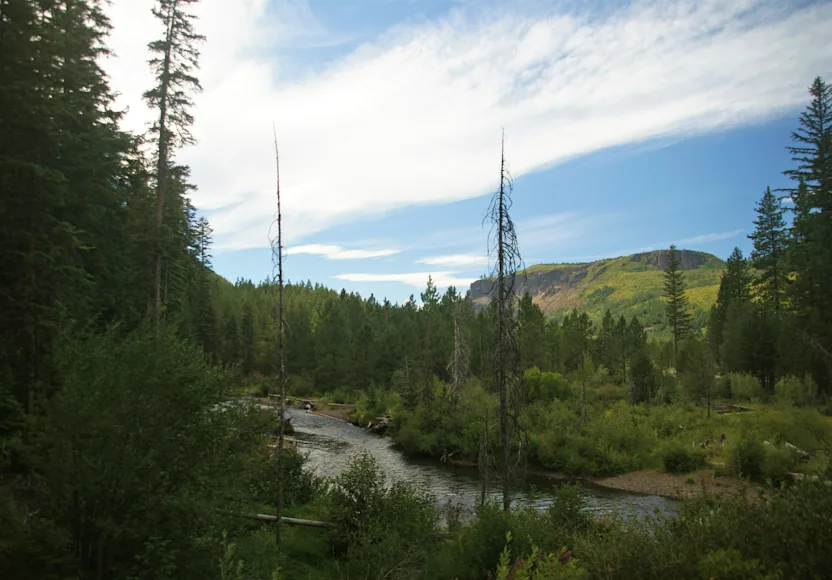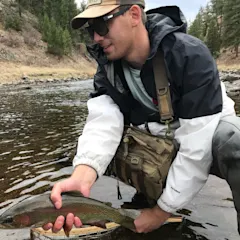A plan to radically expand electric bike use on public land trails has some Pacific Northwest hunters up in arms. They say the "e-bikes" will disrupt wintering big game already pressured by development. Others, mostly within in the local mountain biking community, see the proposal as a way to expand recreational access for people who are otherwise restricted from backcountry travel.
In July 2024, the U.S. Forest Service (USFS) unveiled plans to legalize class 1 e-bikes on 164 miles of trails in the Deschutes National Forest. Most of the trails (many created by bikers riding illegally on game trails) are near the town of Bend, Oregon. E-bikes are currently classified as “motorized vehicles,” though they do require riders to pedal manually before the electrical “assist” kicks in.
Local conservation groups say the e-bike proposal's impacts aren't well understood. The Oregon Chapter of Backcountry Hunters & Anglers (BHA), for example, submitted a formal petition opposing the move. "Many [trails] in the proposal weave through crucial winter range habitats necessary for mule deer and elk," the petition reads. "Wildlife [is] already facing severe pressures from habitat fragmentation. BHA stands firmly opposed to the expansion of motorized use, including e-bikes, in designated non-motorized areas."
Despite early opposition to the plan from hunters, USFS released a "Finding of No Significant Impact" on June 10, 2025. In its petition, BHA points to a lack of critical data on how the proposal will impact wildlife. And the organization is requesting more details about how USFS will enforce increased e-bike use.
The Broader Fight Over E-Bikes
The debate over e-bikes on public lands isn't confined to the Deschutes. According to the U.S. Department of Energy, e-bike sales quadrupled in the U.S. between 2019 and 2022—quickly reaching annual sales of over 1 million bikes. As a result, public land managers have moved to legalize e-bike usage on previously non-motorized trails in California, Utah, and elsewhere.
BHA Western Policy & Conservation Manager Devin O’Dea tells Field & Stream that while e-bikes may not have the same sound impact as other motorized vehicles, they still impact wildlife—particularly deer and elk. “E-bikes lower the threshold for what you need to do to get to these places and open up more terrain for people that wouldn’t be able to get there otherwise,” he says. “Easier access means more pressure. We’re all about making sure there’s access, but there must be a balance. If we put a road in there, there would be even easier access. What are the longterm impacts?”
A recent study published in the journal Global Ecology and Conservation and conducted by a team of German researchers showed that increased e-bike use is intensifying "social and environmental conflicts" in Europe. It also showed that e-bikes lead to greater impacts on wildlife by increasing access to less frequented areas and illegal off-trail riding. BHA is calling for similar research on the impacts of e-bikes on public land in the U.S.
While O'Dea worries about the impacts e-bikes will have on deer and elk herds already squeezed by development, he says the proposed rule changes in central Oregon could pose a broader threat to the very meaning of “backcountry” hunting.
Read Next: Colorado Reconsiders Wolf-Release Protocol After Several Transplanted Wolves Die
“What is the backcountry? Really, it means being in a part of nature that demands some respect to get there,” he says. “If we allow technology to make remote areas easy to get to, will it still be the backcountry? Will you still be able to have the same solace, freedom, and reinvigoration when you’re there? In the name of access, will we erode some of the greatest things about our backcountry public land hunting and fishing opportunities?


